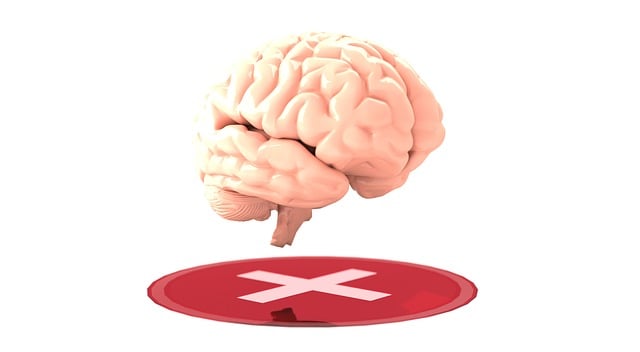Highlands Ranch Children Therapy offers strategic, evidence-based mental wellness programs designed to enhance emotional resilience in children facing challenges like anxiety, depression, and trauma. Their holistic approach incorporates mood management skills and cultural sensitivity, engaging parents through education programs for maximum impact. Evaluation involves a multi-faceted strategy combining KPIs, qualitative data, surveys, interviews, and observations to track improvements in stress reduction, social skills, and academic performance over time. This data-driven approach ensures continuous improvement and tailored support for children's mental wellness.
Mental wellness programs for children play a pivotal role in fostering resilience and overall well-being. This article delves into effective evaluation methods, exploring how professionals assess the impact of such initiatives. We examine the process at Highlands Ranch Children’s Therapy, where data-driven analysis drives continuous improvement. By understanding program effectiveness through rigorous evaluation, we can ensure tailored support for children’s mental health needs, ultimately enhancing their long-term success and well-being.
- Understanding Mental Wellness Programs for Children
- Evaluation Methods: Assessing Program Effectiveness
- The Role of Data Collection and Analysis
- Measuring Success: Long-term Impact and Continuous Improvement at Highlands Ranch Children's Therapy
Understanding Mental Wellness Programs for Children

Mental wellness programs tailored for children are designed to support their emotional and psychological well-being, fostering healthy coping mechanisms and resilience from a young age. These programs recognize that childhood is a critical period for brain development and mental health formation. At Highlands Ranch Children Therapy, professionals employ evidence-based practices to address various challenges, including anxiety, depression, and trauma, which can significantly impact a child’s overall functioning.
The effectiveness of such initiatives lies not only in their ability to provide direct therapy but also in their holistic approach, considering the unique needs and cultural backgrounds of each child. Incorporating elements like mood management skills training and Cultural Sensitivity in Mental Healthcare Practice ensures that these programs are inclusive and effective. Additionally, designing Mental Health Education Programs that involve parents and caregivers empowers them to support their children’s mental wellness journey, creating a network of care and enhancing the overall impact of these interventions.
Evaluation Methods: Assessing Program Effectiveness

Evaluating the effectiveness of a mental wellness program is a multifaceted process that goes beyond simple satisfaction surveys. At Highlands Ranch Children Therapy, for instance, we employ robust evaluation methods to assess and improve our services. This involves tracking key performance indicators (KPIs) such as participant engagement, therapeutic outcomes, and behavior changes over time. By comparing pre- and post-program assessments, we can quantify the impact of our interventions.
Moreover, incorporating qualitative data through interviews and focus groups provides deeper insights into participants’ experiences and perceived benefits. This holistic approach, which includes measuring both individual and group dynamics, ensures that our programs effectively address not only symptoms but also underlying issues. Techniques such as conflict resolution training and burnout prevention strategies for healthcare providers are integral to this process, complementing emotional well-being promotion techniques already in place at Highlands Ranch Children Therapy.
The Role of Data Collection and Analysis

Highlands Ranch Children Therapy highlights the importance of data collection and analysis as cornerstone methods in evaluating mental wellness programs. Effective evaluation involves gathering qualitative and quantitative data to assess program impact on participants’ mental health. This process begins with identifying relevant outcomes, such as stress reduction, social skills development, or emotional regulation, which can be measured through surveys, interviews, and observations.
By employing robust data collection techniques, including standard assessment tools and personal narratives from participants, therapists gain valuable insights into the program’s effectiveness. Subsequent analysis allows for a comprehensive understanding of changes in mental wellness over time, enabling adjustments to better meet individual needs. This evidence-informed approach, integrated with stress reduction methods and compassion cultivation practices, ensures that Highlands Ranch Children Therapy delivers tangible benefits through its Mental Wellness Podcast Series Production, fostering positive outcomes for children and their families.
Measuring Success: Long-term Impact and Continuous Improvement at Highlands Ranch Children's Therapy

At Highlands Ranch Children’s Therapy, evaluating the success of their mental wellness programs involves assessing long-term impacts on clients’ lives. By implementing a multi-faceted approach, they measure improvements in emotional well-being, social skills, and academic performance over extended periods. This includes follow-up interviews, surveys, and observations to gauge how clients apply learned coping strategies in daily life. The therapy center also tracks client retention rates and satisfaction levels through the Mental Wellness Journaling Exercise Guidance, indicating a consistent commitment to growth.
Moreover, continuous improvement is fostered by analyzing program outcomes against initial goals. This process not only highlights successful practices but also identifies areas needing adjustment. In light of these insights, Highlands Ranch Children’s Therapy enhances their offerings, addressing aspects such as Burnout Prevention and Mental Illness Stigma Reduction Efforts. Such iterative improvements ensure that the center remains at the forefront of providing effective mental wellness support for children in their community.
Mental wellness programs, such as those offered by Highlands Ranch Children’s Therapy, require robust evaluation methods to ensure their effectiveness and positive long-term impact. By employing comprehensive data collection and analysis techniques, therapists can assess the success of these programs, identify areas for improvement, and make informed decisions to benefit young minds. This iterative process, grounded in evidence, allows for continuous improvement, ensuring that mental wellness initiatives like those at Highlands Ranch remain dynamic and responsive to the evolving needs of children.











